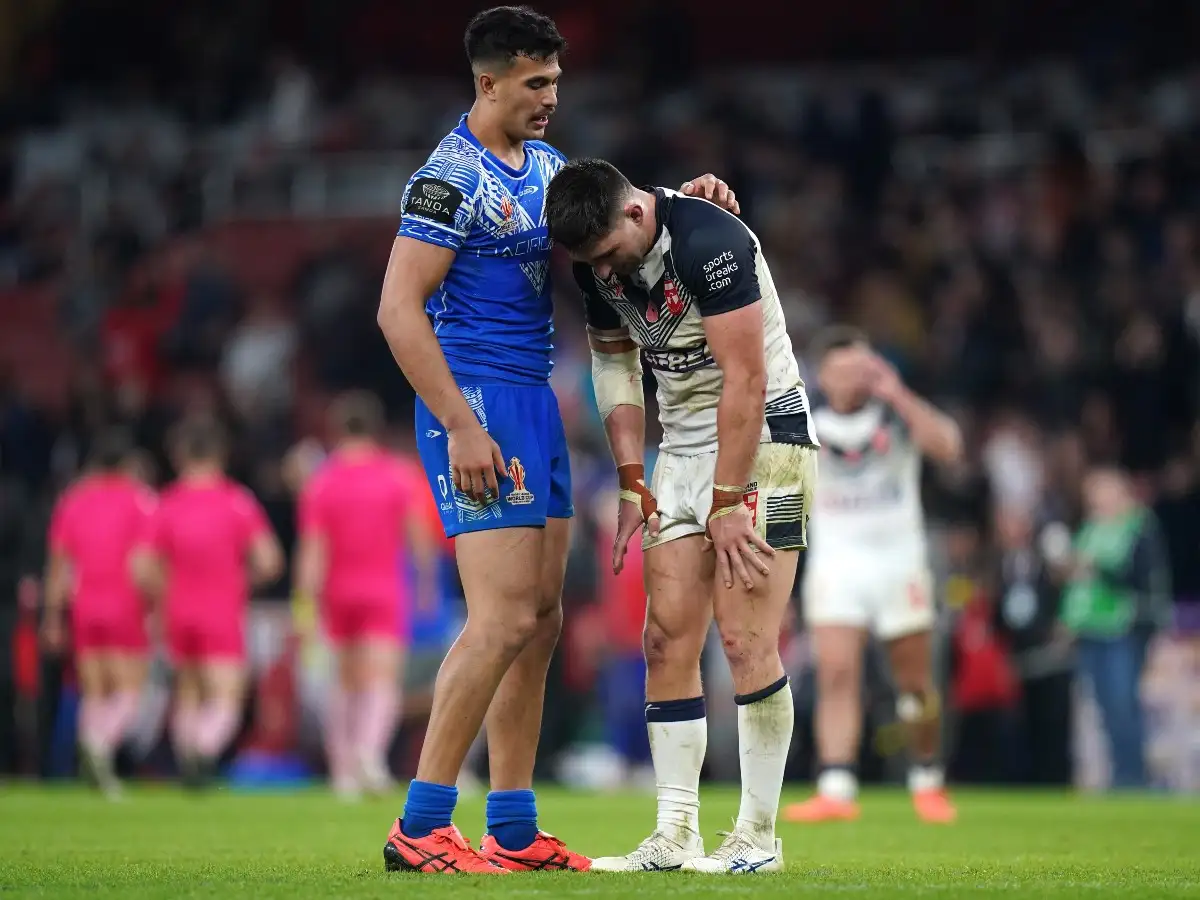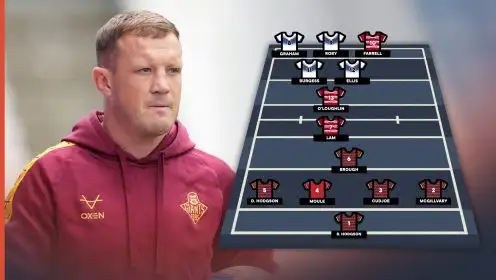Why the wait goes on for international calendar & England plans for 2023

The international rugby league calendar remains unconfirmed as the governing body awaits the outcome of talks Down Under.
Having previously promised an announcement mid-year in 2022, and then by the end of December, there is still no sign of the long-awaited international rugby league calendar being announced.
More than a month has now passed since the end of the 2021 World Cup, which had been postponed for a year, but the majority of participating nations still don’t know when their next game might be.
England and France have announced a double-header in April, while the European Championships will go ahead at the end of the year.
But the key to the international calendar being confirmed is around the southern hemisphere nations.
So far, they have been unable to confirm their arrangements due to the ongoing dispute between the NRL and its players.
“We hope for a resolution ASAP”
Parties have been locked in discussions for months over a new collective bargaining agreement, part of which would effectively confirm player availability, terms and scheduling for those NRL based players to play internationally.
International Rugby League chief, Troy Grant, said: “The CBA negotiations need to conclude for NRL contracted players regarding international matches before Australia and New Zealand can commit to fixtures. That impacts on other nations.
“The International Rugby League aren’t part of the negotiations, nor should we be. Both sides are doing what they think is best, we just hope for a resolution ASAP.
“Other nations can organise whatever they want. The International Rugby League calendar doesn’t dictate or prevent fixtures, it articulates contests across the world.
“The European Championships are World Cup 2025 qualifiers. (Nations) are free to organise as many internationals as they want and can facilitate.”
The exact schedule for the European Championship is yet to be announced, and is believed to be hinged upon whether England or England Knights will be participating.
England are hoping to have a home series against a Pacific Island nation, though it won’t be Australia or New Zealand who are expected to stay Down Under.
If England can get a home series arranged, then England Knights will line-up in the European Championship – although that is a bone of contention for the other participating nations.
The delays, which are out of England’s control, are causing frustration particularly in the aftermath of a relatively successful World Cup.
DATES: How the international rugby league calendar is shaping up for 2023
Timescale on collective bargaining agreement
The NRL has been locked in talks with the clubs and the Rugby League Players’ Association, on behalf of the players, about the collective bargaining agreement for several months.
The current agreement has expired and a new one is required for the 2023 season.
The CBA impacts on players’ contracts, detailing the terms and conditions of their employments, but also how much of the league’s revenue filters down to the players.
According to reports Down Under, the NRL had offered players a 40.5% share of consolidated revenue next year, whereas the RLPA have asked for an increase of two per cent on that figure.
There was an initial deadline of October 31 to reach an agreement, but that has long passed, and there is still no agreement as we enter the New Year.
Further controversy was stoked just before Christmas, when the NRL announced a 25% salary cap increase to take it to $12.1m (£6.88m), but with apparently no communication to clubs about how the changes would be implemented.
The timing and details of the announcement were slammed by RLPA chair Deidre Anderson, as an agreement still hadn’t been reached.
A statement said: “For a governing body to set its own salary cap disrespects the entire player representation movement and the importance of collective bargaining.”
Hopes for January agreement
With the start of the NRL season just eight weeks away, there is even the risk of strike action.
So-called lockouts have occurred predominantly in American sports in the past, where leagues have been shut down due to a lack of agreement between them and their players and clubs.
The NBA season was delayed by a month in 2011, while the entire NHL season was lost in 2004/05. The NHL also lost three months of its 2012/13 season due to a lockout.
But RLPA president Clint Newton said back in November: “If we got to any type of industrial action, it would be a disaster for the code. We haven’t threatened to boycott matches and stand down or have mass player activations. That’s not the way we wanted to approach negotiations.”
In both November and December, it was reported that a CBA was due within a week.
Australian Rugby League Commission chair Peter V’landys is now hoping to have the deal agreed by mid-January.
It is thought that confirmation of the international rugby league calendar plans would then follow soon after.
READ NEXT: A player from each of the 51 rugby league playing nations



